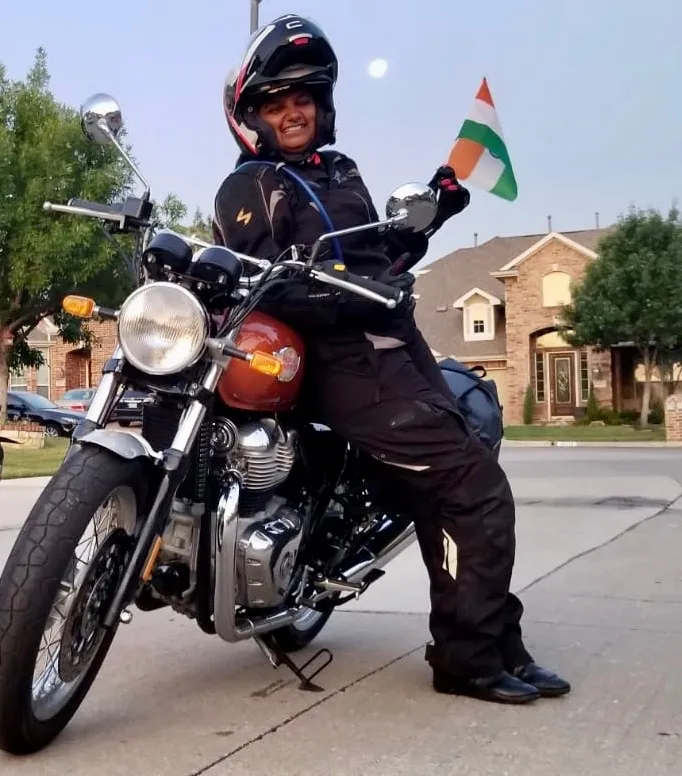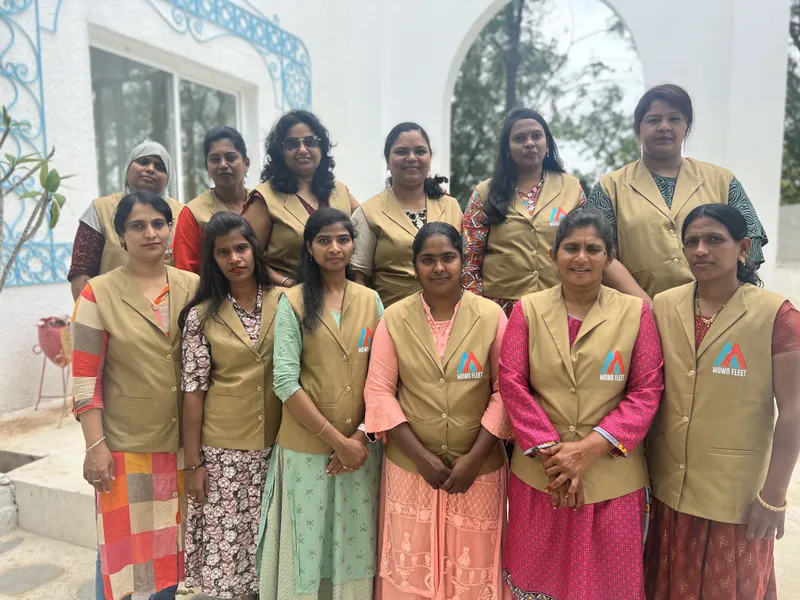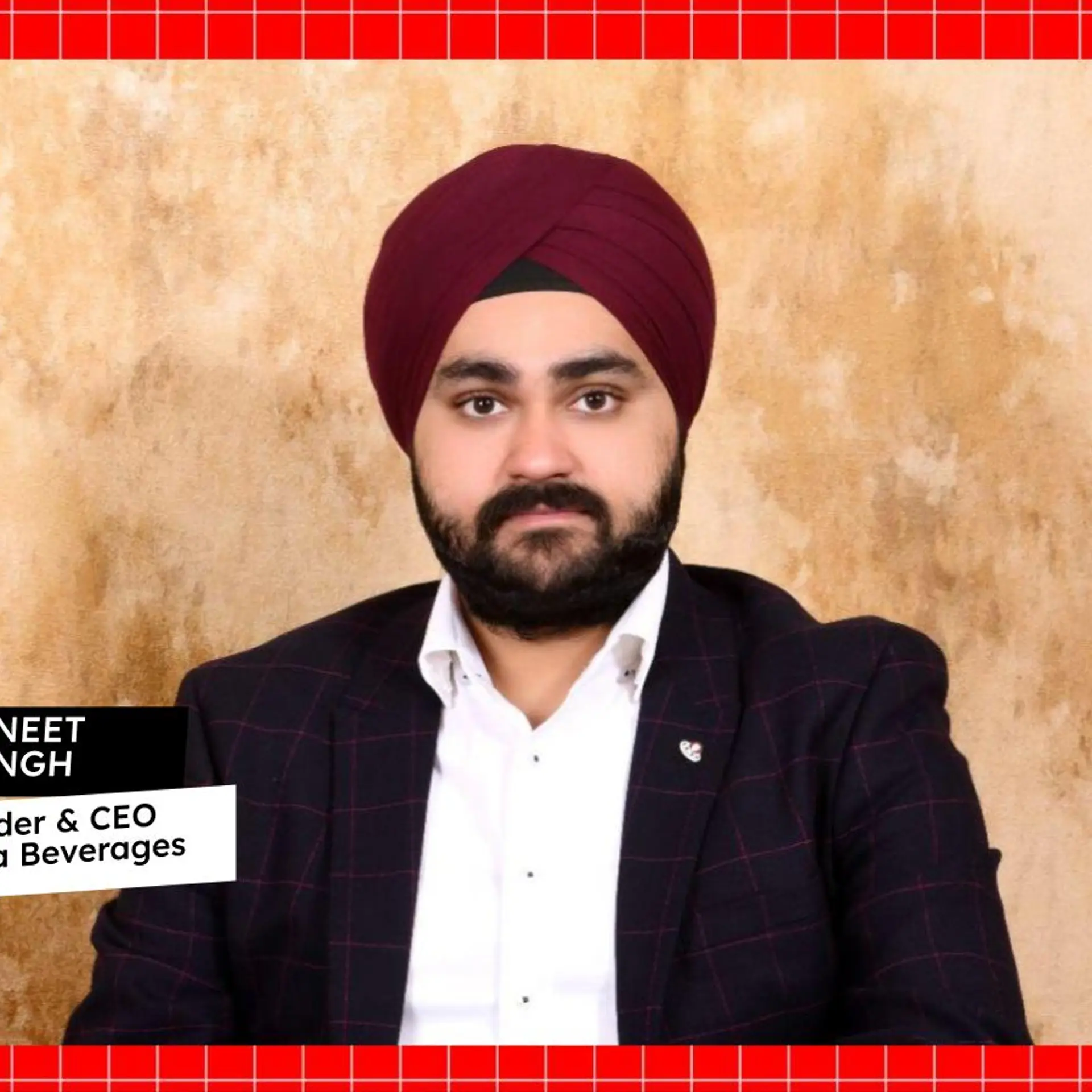This Hyderabad ‘bikerni’ is driving change by teaching women to drive, generating livelihoods
Jai Bharathi started MOWO (Moving Women) Social Initiatives in 2019 to enable women to learn to drive and take up jobs in the mobility sector. In 2022, she started MOWO Fleet, a tech-enabled women drivers’ fleet for last-mile commute and delivery services.
In 2019, when Jai Bharathi was part of a passionate group of four women riders on Road to Mekong, a 17,000 km expedition across India, Bangladesh, Myanmar, Thailand, Cambodia Laos, and Vietnam, she discovered how mobility could transform women’s lives.
As the expedition, which aimed to promote Telangana tourism entered Thailand, she saw many women, all bike taxi drivers in their mid-40s and 50s, waiting on the roads with their bikes. Bharathi was astounded and surprised to see this.

Jai Bharathi
“Looking at these women, who were passenger taxi or food delivery drivers in Northern Thailand, just shook me. I have seen so many women across my travels around the world, but this incident lingered in my mind,” she tells HerStory.
In that moment, a realisation struck her.
“Why can’t we have more women riders in India too, among women of that age, who are continuously looking for livelihood opportunities and not just use a bike or a scooter to commute from one place to another,” she thought.
This led to her establishing MOWO (Moving Women) Social Initiatives, a non-profit organisation that empowers women through mobility as a skill for empowerment and employment. She is also currently building MOWO Fleet–a for-profit startup that aims to add more women to the mobility workforce.
An architect by profession and a biker by passion, Hyderabad-based Jai Bharathi started riding for fun in college as part of Bikerni Hyderabad. In the last decade, she has covered one lakh kilometres across Southeast Asia and the US.
On the Road to Mekong expedition, she discovered far more women on the roads than in India, and it was seen as normal in countries like Thailand, Cambodia, and Vietnam.
But the gender imbalance on Indian roads was stark. There were safety concerns too.
“Through the trip, I was thinking about what we could do to make roads or driving gender neutral. With that thought in mind, I channelised my networks to see what social impact we can create by teaching women to drive,” she says.
Making roads gender neutral

A woman learning to drive an electric autorickshaw
In 2019, Jai Bharathi started MOWO Social Initiatives with an aim to enable a million women in mobility by 2030.
The right start, she believed, would come from advocacy, especially among women from the lower income group, who had no access to even a basic scooter. She felt mobility could open diverse opportunities for these women.
“We started creating awareness that it’s imperative for women to have access to mobility, and also educated the men and children in their lives to encourage them to learn to drive,” she explains.
With mobility as a skill, Jai Bharathi says, a woman can do what she wants—run her own business, drop her children to school, or use it as a livelihood skill. What’s important is giving her that skill.
During a Moving Boundaries expedition in 2021 covering 20 cities across India, the awareness reached its peak. She floated a WhatsApp number for women to write in, met women in person to understand their thoughts, talked to government organisations and other stakeholders in the ecosystem to assess their willingness to support women.
“Most of the women were willing to learn, but the biggest problem was that there was no one to teach them. And if they did learn, the policies around the mobility sector are unfortunately built to suit men in the workforce,” she says.
Also, most mobility platforms or ecommerce platforms required women to be skilled and have the proper documentation to become driver-partners. With this in mind, MOWO Social floated a WhatsApp group that generated interest from 2,000 women who were interested to work as drivers.
In the driver's seat
This led the organisation to initiate motor training, beginning with Hyderabad.
So far, it has trained 2,500 women in Hyderabad to drive two-wheelers and over 200 women to ride electric autorickshaws. As these women progress, it will initiate training in four-wheelers.
MOWO Social uses the Motor Training Centre of the Department of Women and Child Welfare, Government of Telangana, to train women. It is India’s first motor training centre, exclusively for women.
“Women feel comfortable here because they need a safe and enclosed environment to learn,” she says. Since the centre is located in a government department, almost all the women who come to learn other skills also sign up for the motor training programme. The training is given free of cost, but MOWO Social encourages them to apply for their own licence so that they are serious about it.
It also conducts training camps in rural areas and organised one in the BITS Pilani Campus in Hyderabad for 150 of its women sub-staff. In Delhi, it organises training in partnership with GMR Foundation and ETO motors where women are trained to drive EV autos. It is looking to partner with other state governments and build centres within government buildings so that women have easy access to training.
“After advocacy and motor training, we wanted the women to use the mobility to earn a livelihood. Many did take the step forward and worked with different platforms, but quit their jobs within a couple of months,” Jai Bharathi says.
The problems were many. There were very few women drivers and they felt intimidated with too many men around. There were also no washrooms for women, and these issues were becoming a deterrent to continue in the workforce.
Jobs in the mobility sector

The MOWO fleet
This led her to start MOWO Fleet in 2022, a for-profit startup, focused on hiring women drivers and giving them better livelihood opportunities in the mobility sector.
She believes while there is a good market for women drivers, MOWO Fleet is trying to figure what are the best platforms that allow women to work around hubs, provides good washroom facilities, and have at least one woman on the desk at these places. After providing motor training, and helping them with the requisite documentation, the startup has also helped 50 women take up work with Blue Dart and has also run a pilot with Uber.
The fleet is entirely EV and takes care of women drivers' schedules as per their availability through the app.
Kalpana, a single mother from Hyderabad, tried different odds jobs before getting to know about MOWO Fleet from a friend.
“After training and support, I have been working with MOWO Fleet for the past six months and feel happy and respected. My income is helping my family live better,” she says.
This is what attracts women to the fleet, says Bharathi.
“Most of these women are first-time job holders. So, there’s a direct 50% addition to the family income. They are earning around Rs 15,000-17,000 in a limited number of working hours and the income is consistent. Also, most of them are planning to invest in EVs, and the amount they spend on fuel can go towards the EMI,” she adds.
MOWO Social Initiatives runs on grants and funding from different organisations. MOWO Fleet has received grants from Villgro in three capacities–a debt fund, through its Tvaran programme, and as a winner of its Sustainable Mobility Challenge. The Fleet is also planning to raise a seed round soon.
Jenaan Lilani Bhargava, Chief Operating Officer, Villgro, says, "MOWO is a fantastic example of a company that has cracked the code to being “gender-smart”. Through our programme ‘Tvaran, we are working with MOWO on key levers for scale. This involves technology development of their platform, as well as pure-play operational support to on-board a larger number of women drivers. What we are most committed to is opening doors to some big new customers for MOWO, and hopefully that’s just around the corner.”
The company runs on a 15-member team for MOWO Social Initiatives and has nine people on board for MOWO Fleet.
“We want to start subscription-based commute services and start hobby classes pick-ups and drops in Hyderabad where the demand is high for transport services beyond school hours,” she says.
(The copy has been updated to reflect a change - MOWO Fleet is a for-profit startup)
Edited by Megha Reddy







